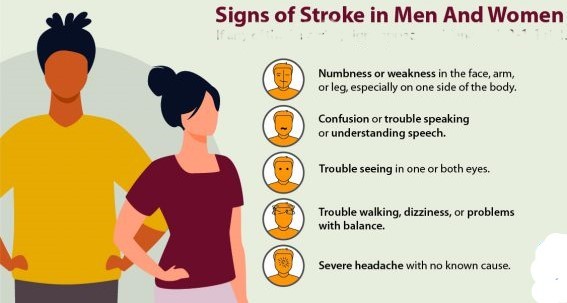The number of people dying from stroke may rise up to 9.7m globally by 2050, experts have warned.
This was made known by the experts at the collaborative World Stroke Organization – Lancet Neurology Commission at the just concluded World Stroke Congress 2023 in Toronto, Canada.
The Lancet Neurology Commission also used the opportunity to present its ‘Pragmatic solutions to reduce the global burden of strokes,.’
They forecast that the number of stroke-related deaths is set to surge by a staggering 50 percent; meaning that from the 6.6million lives claimed by strokes in 2020, the toll is projected to rise to a daunting 9.7million by 2050.
As a result of their assessments, they identified and prioritized several key recommendations based on the four pillars of the stroke quadrangle of: surveillance, prevention, acute care and rehabilitation.
In commemoration of World Stroke Day (WSD) today, a Nurse Consultant in Stroke Rehabilitation, Stroke Action Nigeria, Rita Melifonwu mentioned that one in four people will have a stroke in thejr lifetime.
While she disclosed that over 12million people have strokes worldwide annually, she revealed that stroke has become an epidermic in Nigeria, affecting over 200,000 people each year.
She however noted that but noted that 90percent of strokes could be prevented by action on a handful of manageable risk factors including high blood pressure, atrial fibrillation (irregular heartbeat), smoking, diet, and exercise.
According to her, stroke continues to be the leading cause of death worldwide this year; adding that the burden of disability after a stroke is increasing globally and is higher in Africa.
“More young adults under the age of 55 years are having strokes. Each year over 12 million people have strokes worldwide. In Nigeria a country with over 200million people, stroke has become an epidermic affecting over 200,000 people each year.
“Mortality rates are very high with a range of 21percent – 45percent. At the Stroke Action Life After Stroke Centres in Nigeria, at least 18 referrals of stroke survivors discharged from hospital care are received each month and majority of the stroke survivors are of working age.
“Many of the survivors end up with severe disability due to lack of stroke units and stroke rehabilitation services in the country. Also, most stroke survivors in Nigeria remain unemployed and are unable to maintain their livelihoods,” she lamented, noting that the Greater Than Campaign theme for World Stroke Day 2023 is meant to empower Nigerians to the realization that stroke prevention is possible.
The world stroke day, she said, is an opportunity to raise awareness of the serious nature and high rates of stroke, talk about prevention and treatment as well as ensure better care and support for stroke survivors.
“For the next two years, the World Stroke Day Campaign will focus on prevention because of the increasing incidence of strokes globally. The theme this year is #Be Greater Than Stroke.”
She further mentioned that Stroke Action Nigeria is currently working with Philips Foundation and the organized stroke care across income levels (OSCAIL) to carry out a randomized control trial to evaluate the impact of its Life After Stroke Centre.
The research she said, will be completed in 2024 and results may contribute to benefits of community-based life after stroke centres in Nigeria and Africa.
Stroke Action is a member of the Federal Ministry of Health’s Non-Communicable Diseases (NCD) expert technical working group that developed the Multisectoral Action Plan (MSAP) on the Control and Prevention of NCDs in Nigeria.


